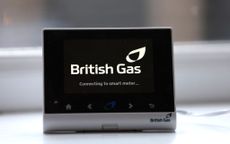The best packaged bank accounts
Packaged bank accounts can offer great value with useful additional perks – but get it wrong and you could be out of pocket.


Whether you’re looking for the best savings or bank account, you may find a packaged bank account works best for you.
A packaged bank account is a current account where you pay a monthly fee in return for a range of extras, and if the price is right, it could be a great option for you and your finances.
If you’re looking for either the best savings or bank account, you may find a packaged bank account works best for your needs. By bringing a number of perks under one umbrella, you may find it easier to manage your money, plus you have the chance to take advantage of some worthwhile rewards.
Subscribe to MoneyWeek
Subscribe to MoneyWeek today and get your first six magazine issues absolutely FREE

Sign up to Money Morning
Don't miss the latest investment and personal finances news, market analysis, plus money-saving tips with our free twice-daily newsletter
Don't miss the latest investment and personal finances news, market analysis, plus money-saving tips with our free twice-daily newsletter
In exchange for a fee, you get access to benefits including travel insurance, home insurance, mobile phone and gadget insurance, breakdown cover, cashback, higher savings interest rates and discounted overdrafts.
Some banks offer different levels of packaged accounts, with the price rising in line with the number of services it includes, so expect a range of price points and varying types of extras.
The amount you’ll pay depends on the bank and which account you choose, so it is worth shopping around and finding a package that suits you.
Here are the best packaged bank accounts available now.
The best packaged bank accounts
Monthly fee: £13 a month
What you get: Family mobile phone insurance, worldwide family travel insurance (up to age 69, or 70+ if you pay a £65 a year upgrade), UK & European breakdown cover for account holders.
Pros: Worldwide family travel insurance includes most winter sports. The phone insurance covers all family members living at the same address with up to four claims per year up to a maximum £1,500 per claim. The ability to continue the plan once you’re over 70 is a great perk too, and although it does come at a cost, other package account providers will cut-off your coverage once you reach a certain age.
Cons: Nationwide charges 39.9%APR on its overdraft.
Monthly fee: £12.50 a month
What you get: Family mobile phone and gadget insurance, worldwide family travel insurance (up to age 75), UK breakdown cover for account holders, 2.02% interest on balances up to £1,000
Pros: Mobile phone and gadget insurance covers devices owned by family members at the same address. Each device is covered up to £2,000 and you’re limited to four claims a year.
The travel insurance covers winter sports, wedding and golf cover for you, your partner and up to four children under 18 living at the same address.
The 2.02% interest could help recoup some of the monthly cost. You can also earn 3.03% interest on balances up to £25,000 in the linked Club M Saver account.
Cons: Watch out for the overdraft rate – it can be up to 39.9%APR. Have a look at Virgin Money’s overdraft calculator to get a better understanding of the potential costs.
Monthly fee: £15 a month
What you get: Mobile phone cover for account holders, worldwide family travel insurance (up to age 79), UK & European breakdown cover for account holders
Pros: It has the oldest age limit on travel insurance and it includes winter sports and golf cover. It’s also available as a sole or joint account.
Cons: Mobile phone insurance only covers the account holder.
You can get additional rewards if you opt into the bank’s Everyday Rewards. If you pay in £800 a month, pay out four direct debits, opt for paperless banking, log into online or mobile banking and stay within your credit or overdraft limit you will get £1 of your monthly fee back. You also get 2p per debit card transaction back (up to £1.20 a month). If you get the full £2.20 back every month this account works out cheaper than Nationwide and Virgin M, but it is a lot of hoops to jump through.
Monthly fee: £17 a month
What you get: Mobile phone insurance for account holders up to £2,000, worldwide family travel insurance (up to age 70), UK breakdown cover for account holders, home emergency cover.
Plus, if you pay in £1,500 or more a month, stay in credit and spend either £500 a month on your debit card or keep a minimum balance of £5,000 in your account you can choose from the following extra rewards: £5 a month cash, three digital magazines, two digital film rentals, a free cinema ticket and a half-price popcorn voucher.
Pros: If you want home emergency cover as well as the other insurance this account could offer good value. The travel insurance covers winter sports and golf.
Cons: The phone insurance only covers the account holder, not family members. You are limited to two claims a year.
This is the most expensive account unless you can get the £5 cashback, but there are a lot of hoops to jump through to get it. You must choose if you are going to spend £500 a month on your credit card or maintain a balance of £5,000 in your account. You can only change your option after 12 months.
Should I get a packaged bank account?
A packaged bank account might be a good option for you if:
You will use the perks: if an account comes with travel insurance, do you go abroad enough to make it worthwhile? Will you use those free cinema tickets?
The insurance is suitable: check the exclusions on insurance policies to make sure they would pay out if you made a claim. For example, are you under the age limit for a travel insurance policy and is your mobile phone model covered?
You don’t already have the benefits: make sure you don’t already have the insurance coverage elsewhere. For example, have you got breakdown cover included in your car finance package or car insurance?
You will actually save money: if you were to pay for the service separately it could work out cheaper than the account fees. Double-check before you open an account.
The account suits your needs: don’t forget to check that the bank account is suitable too. Does it have the overdraft you need? If you need a branch, is there one local to you?
What to consider before opening a packaged bank account
Packaged bank accounts can offer enticing extras, but before you open an account make sure you consider all the elements of the account.
Take a close look at any insurance policies being offered. If you’ll get travel insurance included, make sure that you are under the maximum age for cover and that you have no existing medical conditions that would affect the cover. Check also that the policy covers you in the countries you tend to visit, or are planning on visiting.
If you have any existing medical conditions, make sure you tell the bank when you open your account. This could hamper your chances of being accepted, but it’s a better outcome than not disclosing a condition, only for something to happen down the line.
We’ve all had enough of it now, but it is worthwhile to still check coronavirus exclusions. You want a policy that covers you if you need treatment for Covid 19 while you are abroad and your cancellation costs if you test positive and can’t go on your trip.
Check if you have to pay extra for winter sports cover or to protect your whole family. If you need those extras, is the account still offering good value for money?
Are packaged bank accounts good value?
Working out if a packaged bank account offers value for money is straightforward: take the monthly charge and multiply it by 12 to get the annual cost. Then shop around to see what the benefits would cost you separately.
If the packaged bank account costs less, then it is good value. Just make sure you repeat those processes each year rather than sticking with a packaged account for years that may no longer offer you good value.
Tips for opening a packaged bank account
If you are opening a packaged bank account, it usually pays to make it a joint account if you can. With most accounts, all account holders are covered for the same fee. This means you could both get breakdown cover and insurance protection at no extra cost.
While you are looking at bank accounts that come with perks, consider whether a premium account might offer you better value than a packaged bank account. Premium accounts often offer similar benefits to packaged accounts but without the monthly fee. But to qualify, you usually need to be a high earner with an annual salary of around £75,000.
Tom is a journalist and writer with an interest in sustainability, economic policy and pensions, looking into how personal finances can be used to make a positive impact.
He graduated from Goldsmiths, University of London, with a BA in journalism before moving to a financial content agency.
His work has appeared in titles Investment Week and Money Marketing, as well as social media copy for Reuters and Bloomberg in addition to corporate content for financial giants including Mercer, State Street Global Advisors and the PLSA. He has also written for the Financial Times Group.
When not working out of the Future’s Cardiff office, Tom can be found exploring the hills and coasts of South Wales but is sometimes east of the border supporting Bristol Rovers.
-
-
 Most popular stocks of 2023: AI on the up while interest in Netflix plummets
Most popular stocks of 2023: AI on the up while interest in Netflix plummetsWe reveal the most popular shares of 2023 so far.
By Ruth Emery Published
-
 Marine North Berwick review: Scotland’s magical bird isles
Marine North Berwick review: Scotland’s magical bird islesMatthew Partridge combines a stay at Marine North Berwick with a visit to see the puffins
By Dr Matthew Partridge Published
-
 Savings rates more than double in a year as challenger banks top the best buy tables
Savings rates more than double in a year as challenger banks top the best buy tablesThe best savings rates have doubled - and in some cases tripled - in a year, with challenger banks offering the highest rates. While they are still no match for inflation, we look at what you could be earning.
By Ruth Emery Published
-
 Midlife MOT: what is it and who can get one?
Midlife MOT: what is it and who can get one?The government has launched an online midlife MOT to help older workers with financial planning, health guidance and career skills. But how does it work, who can get one and would you pass it?
By Ruth Emery Published
-
 Coventry Building Society launches new best easy access savings account
Coventry Building Society launches new best easy access savings accountCoventry Building Society's deal tops our easy access savings account list, but could your cash be put to better use?
By Tom Higgins Published
-
 NS&I boosts fixed-term savings rates
NS&I boosts fixed-term savings ratesThe NS&I, the government-backed savings institution has mirrored recent rate rises seen elsewhere in the market.
By Tom Higgins Published
-
 Should you let AI give you financial advice?
Should you let AI give you financial advice?Can AI fill the financial advice gap? Kalpana Fitzpatrick looks at the pros and cons of using AI to guide your finances.
By Kalpana Fitzpatrick Published
-
 Small pension pots to be consolidated, says DWP
Small pension pots to be consolidated, says DWPWorkplace pension schemes worth less than £1,000 that become “deferred” when a saver changes jobs will be consolidated under a new system
By Ruth Emery Published
-
 Watchdog summons banks to explain paltry savings rates
Watchdog summons banks to explain paltry savings ratesSavings rates trail mortgage rates - and the financial watchdog has summoned banks to a meeting amid concerns of profiteering.
By Katie Binns Last updated
-
 British Gas to offer half-price electricity on Sundays to 200,000 customers
British Gas to offer half-price electricity on Sundays to 200,000 customersBritish Gas offering certain smart meter users a 50% discount on their electricity on Sundays this summer. We explain everything you need to know
By Ruth Emery Published













